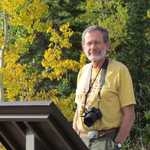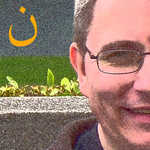

the end of the Lewis & Clark trail whispers stories, as the sea gestures...
March 27th, 2015, 2pm
It was 14°C with broken clouds. The breeze was gentle.
There is an end to every road, a place where the dream logic of a journey reaches its hard, fast, inalienable conclusion. Most often the markers are physical and geographic, as when the pavement quits before the roiling, restless sea. Other trips end in a psychic bang, or realization, that one phase of the life that one may have is over, fini; and the new road stretches ahead like a sleepless night, like the consequences of a promise kept, like falling in love, like falling out of love, like swimming away from an ocean of tears toward the dry land of a new dream.
I recently came to the end of a road, and I am unraveling the tangled up in blue facts and insinuations that were waiting for me at the end of the road. In my case, I went for a job interview as a chef, and in the “have knives, will travel” aspect of my ninja warrior ingredient worshipful ways I explored a place I hadn’t been before, at the edge of this wild place we call America.
Of course, Amerigo Vespucci, the inveterate mapmaker who is the strangely undeserving yet lyrical namesake of these wild new American lands, never knew what the Pacific Coast looked like; in particular, he never glimpsed the ferocious surge of the Columbia River conveying mountains and salmon, men and stumptown forests, shipwrecks and the bleached bones of dead end dreams that kindle with the smoke of hope at the edge of the known world.
As a New Orleans chef, I know about dead end roads. My city is the cloaca of the mighty Mississippi River, the Father River that bestows life like blood to these strange new American lands, and it was New Orleans which was the object of desire that the upstart Americans wanted when Napoleon, weary of Haitian slave revolts and the unruly wilderness of an uncharted vastness, offered up that which he didn’t really own: of vast bison herds and an ocean of prairie grasses, peaks and valleys, and peoples who were already here who knew nothing of this mythical America of which we white men would speak about, like it mattered to the ocean, to the roaming bears and quizzical prairie dogs and stomping grouse booming in this vastness that required no discovery.
Nonetheless, The Corps of Discovery led by Lewis & Clark was dispatched, and their intrepid travels and meticulous, though misspelled, journals stand as one of the keystone achievements of this American Dream constituting one of the greatest travel tales the world has ever read, as the Corps of Discovery carefully shared how they read this unfurling vastness and peoples, and let it be said: for all their flaws and heroism it is because of Lewis & Clark that this strange place we now know as America is here, from sea to shining sea where amber waves of grain inhabit this Dreaming where the bison, the various bears, the salmon, and the prairie dogs, and the booming grouse, and the First Nation peoples used to roam.
One only has to look back at Sacagawea to wonder about the “what if” possibilities of this American Dream? What if we had shared this land of freedom, rather than conquered it? What if we were able to lean on the ancient wisdom of the First Nation people to decipher this teeming vastness? Is it still true that what makes us Americans is this impulse to join The Corps of Discovery? What if we steadfastly claim our fierce dedication to these ideals of science and nature and cultural respect and the bravery of curiosity that animates the pages of the Lewis & Clark Expedition?!
But “what if” and history go together like cement and shoes dropped into a roiling, restless sea; there is no “do over.” Just as in our own lives, in our own personal archaeology of triumphs and fears and the ordinary bumps & bruises of Life, we get this one chance to follow our restless heart, so isn’t it better to go forth into the adventure, learn to dream big, keep your knives as sharp as your mind, open and hungry to learn, and if it all shakes out okay, what this world is won’t bring you more dismay than you can handle, and may it bring you more joy than you know what to do with once you join The Corps of Discovery!
Thus, it isn’t a bad thing, this paved road racing along the enormous Columbia River, the result of much heroism and no small amount of greed where I find myself driving onto sandy shores of the Pacific Ocean, mesmerized as any pioneer, as indeed Sacagawea was mesmerized by the wild pulse of the sea— as she had never seen the sea before joining Lewis & Clark. It is at this strange point at the end of a road that began in New Orleans when the Louisiana Purchase was signed in 1803, that near here The Corps of Discovery met the end of the road Pacific Ocean late at the onset of winter in November, 1805.
Stranger still, a grey whale had died in January, 1806 and washed upon these shores, and the forlorn stench (and the possibility of meat and blubber) greeted Lewis & Clark. Sacagawea, who had earlier been given a vote on where to establish Fort Clatsop to stay the winter (not far from today’s charming town of Astoria, OR) as equal as the other 33 men in the Corps including her French trapper husband, Toussaint Charbonneau, this most improbable of American heroines was granted her wish to both see “the monstrous fish” and listen to the sibilant sighs and roaring secrets of the ceaseless sea as reward for the long journey she undertook to protect Lewis & Clark’s passage through Shoshone country and beyond. Some say the men ate too much of the rotting whale and became ill, and that Sacagawea nursed them back to health with wild fennel. Others say the whale was already picked clean as a carcass, but that the smell of death lingered for miles.
Nonetheless, the tale of the rotting whale of Lewis & Clark and of Sacagawea seeing the sea for the first time amidst death and a hard Winter in strange lands resonates across the pages of Time, and as for me, I am met with the surprise that my very first moment in Long Beach, WA is this encounter with art that memorializes this whale from Lewis & Clark. I am reminded of other stories from other lands where people see the majesty of the ocean for the first time, and even though I am a pirate who loves patrolling the dead end roads along any coast wherever I may traipse, the immensity of the ocean always gets under my skin and speaks to me in ways I can only feel, like I feel the blues.
William Cark’s journal indicates the whale that Sacagawea saw was found further to the south from Fort Clatsop, perhaps where Seaside, OR bustles amidst the shining stores of nearly anything a modern American family could desire, from a PetsMart to espresso, from hardware to our now mundane essentials for modern life that would have dazzled Sacagawea, Meriwether Lewis, and William Clark as if we were spacemen from a future too bright to reconcile with a dismal, wet winter hunkered down at the edges of the world in 1806.
There is historic verisimilitude and there is poetry, there are facts and there are legends, and these states of knowing the truth help us to navigate the dangerous shoals of meanings and memories. I am not a Lewis & Clark historian, so when I parked my trusty fossil fuel burning Toyota, and wandered just a few steps away in Long Beach, WA and saw this whale memorial art….I met my metaphor for the end of the road, my signpost that from the jazz bejeweled city of New Orleans to this beach, this other end of a mighty river, the Columbia, to this end of the beginning of the American Dream, this inevitable kiss farewell where the sea beckons us beyond, but from which The Corps of Discovery dug in, survived, and returned to report on the botany, geography, and peoples of this strange land called America; and that furthermore aren’t we all still unknown and strangers unto ourselves, and that all of us, past, present and future would too soon to be irrevocably changed by this mad, modern world that spun from Lewis & Clark and the numinous what ifs that were buried by history’s gold rush of inexorable consequences.
Where will our legacy be remembered, 200 years from now, into this brightly shining future? If what they say is true about Antarctica and Greenland glaciers melting and seas inexorably rising, the distinct possibility is that all of this will be as strange a fable as Atlantis, drowned by history’s indifference to “what if” as surely as cement and shoes don’t belong together unless you are doomed.
As it turns out, I didn’t get the job. I did get the place, and that might be the more important discovery for me, this end of the road where the ocean keeps roaring secrets we can’t afford to ignore. I can assure you that it won’t be my last visit to these distant shores where the beginning of the end of the American Dream was born, and that nevertheless I still hold out hope, fitfully, that if enough of us join The Corps of Discovery instead of taking everything, everything for granted…that we might tell another fable from the Dreamings of what if….
Filed Under
Other moments in Long Beach
-
Kind of late, but commotion still plenty here. New Slang is playing.
in Long Beach, United States -
Ants taking over fallen wasp nest.
in Long Beach, United States -
thinking about jello. making some, that is. and bubbles. want to make bubble solution and hopefully some mega gigantic bubbles.
in Long Beach, United States -
Before the hordes arrived.
in Long Beach, United States -
Their fallen umbrella was the least of their sins.
in Long Beach, United States -
Watching Long Island Medium - I believe in psychic phenom but wondering if it's possible to talk to dead people.
in Long Beach, United States -
I'm laying out the pages of my poetry book by hand. Old school. Not because I want to, cause I gotta.
in Long Beach, United States


